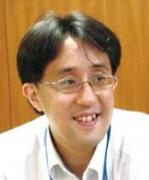Optical Characterization of OMT-Coupled TES Bolometers for LiteBIRD
Hubmayr, J., Ade, P.A.R., Adler, A., Allys, E., Alonso, D., Arnold, K., Auguste, D., Aumont, J., Aurlien, R., Austermann, J.E., Azzoni, S., Baccigalupi, C., B, ay, A.J., Banerji, R., Barreiro, R.B., Bartolo, N., Basak, S., Battistelli, E., Bautista, L., Beall, J.A., Beck, D., Beckman, S., Benabed, K., Bermejo-Ballesteros, J., Bersanelli, M., Bonis, J., Borrill, J., Bouchet, F., Boulanger, F., Bounissou, S., Brilenkov, M., Brown, M.L., Bucher, M., Calabrese, E., Calvo, M., Campeti, P., Carones, A., Casas, F.J., Catalano, A., Challinor, A., Chan, V., Cheung, K., Chinone, Y., Chiocchetta, C., Clark, S.E., Clermont, L., Clesse, S., Cliche, J., Columbro, F., Connors, J.A., Coppolecchia, A., Coulton, W., Cubas, J., Cukierman, A., Curtis, D., Cuttaia, F., D?Aless, ro, G., Dachlythra, K., de Bernardis, P., de Haan, T., de la Hoz, E., De Petris, M., Della Torre, S., Daz Garca, J.J., Dickinson, C., Diego-Palazuelos, P., Dobbs, M., Dotani, T., Douillet, D., Doumayrou, E., Dub, , L., Ducout, A., Duff, S.M., Duval, J.M., Ebisawa, K., Elleflot, T., Eriksen, H.K., Errard, J., Essinger-Hileman, T., Farrens, S., Finelli, F., Flauger, R., Fleury-Frenette, K., Franceschet, C., Fuskel, , U., Galli, L., Galli, S., Galloway, M., Ganga, K., Gao, J.R., Genova-Santos, R.T., Georges, M., Gerbino, M., Gervasi, M., Ghigna, T., Giardiello, S., Gjerlw, E., Gonzles, R.G., Gradziel, M.L., Grain, J., Gr, sire, L., Grupp, F., Gruppuso, A., Gudmundsson, J.E., Halverson, N.W., Hamilton, J., Hargrave, P., Hasebe, T., Hasegawa, M., Hattori, M., Hazumi, M., Henrot-Versill, S., Hensley, B., Herman, D., Herranz, D., Hilton, G.C., Hivon, E., Hlozek, R.A., Hoang, D., Hornsby, A.L., Hoshino, Y., Ichiki, K., Iida, T., Ikemoto, T., Imada, H., Ishimura, K., Ishino, H., Jaehnig, G., Jones, M., Kaga, T., Kashima, S., Katayama, N., Kato, A., Kawasaki, T., Keskitalo, R., Kintziger, C., Kisner, T., Kobayashi, Y., Kogiso, N., Kogut, A., Kohri, K., Komatsu, E., Komatsu, K., Konishi, K., Krachmalnicoff, N., Kreykenbohm, I., Kuo, C.L., Kushino, A., Lamagna, L., Lanen, J.V., Laquaniello, G., Lattanzi, M., Lee, A.T., Leloup, C., Levrier, F., Linder, E., Link, M.J., Lonappan, A.I., Louis, T., Luzzi, G., Macias-Perez, J., Maciaszek, T., Maffei, B., Maino, D., Maki, M., M, elli, S., Maris, M., Marquet, B., Martnez-Gonzlez, E., Martire, F.A., Masi, S., Massa, M., Masuzawa, M., Matarrese, S., Matsuda, F.T., Matsumura, T., Mele, L., Mennella, A., Migliaccio, M., Minami, Y., Mitsuda, K., Moggi, A., Monelli, M., Monfardini, A., Montgomery, J., Montier, L., Morgante, G., Mot, B., Murata, Y., Murphy, J.A., Nagai, M., Nagano, Y., Nagasaki, T., Nagata, R., Nakamura, S., Nakano, R., Namikawa, T., Nati, F., Natoli, P., Nerval, S., Neto Godry Farias, N., Nishibori, T., Nishino, H., Noviello, F., O?Neil, G.C., O?Sullivan, C., Odagiri, K., Ochi, H., Ogawa, H., Ogawa, H., Oguri, S., Ohsaki, H., Ohta, I.S., Okada, N., Pagano, L., Paiella, A., Paoletti, D., Pascual Cisneros, G., Passerini, A., Patanchon, G., Pelgrim, V., Peloton, J., Pettorino, V., Piacentini, F., Piat, M., Piccirilli, G., Pinsard, F., Pisano, G., Plesseria, J., Polenta, G., Poletti, D., Prouv, T., Puglisi, G., Rambaud, D., Raum, C., Realini, S., Reinecke, M., Reintsema, C.D., Remazeilles, M., Ritacco, A., Rosier, P., Roudil, G., Rubino-Martin, J., Russell, M., Sakurai, H., Sakurai, Y., S, ri, M., Sasaki, M., Savini, G., Scott, D., Seibert, J., Sekimoto, Y., Sherwin, B., Shinozaki, K., Shiraishi, M., Shirron, P., Shitvov, A., Signorelli, G., Smecher, G., Spinella, F., Starck, J., Stever, S., Stompor, R., Sudiwala, R., Sugiyama, S., Sullivan, R., Suzuki, A., Suzuki, J., Suzuki, T., Svalheim, T.L., Switzer, E., Takaku, R., Takakura, H., Takakura, S., Takase, Y., Takeda, Y., Tartari, A., Tavagnacco, D., Taylor, A., Taylor, E., Terao, Y., Terenzi, L., Thermeau, J., Thommesen, H., Thompson, K.L., Thorne, B., Toda, T., Tomasi, M., Tominaga, M., Trappe, N., Tristram, M., Tsuji, M., Tsujimoto, M., Tucker, C., Ueki, R., Ullom, J.N., Umemori, K., Vacher, L., Van Lanen, J., Vermeulen, G., Vielva, P., Villa, F., Vissers, M.R., Vittorio, N., W, elt, B., Wang, W., Wehus, I.K., Weller, J., Westbrook, B., Weymann-Despres, G., Wilms, J., Winter, B., Wollack, E.J., Yamasaki, N.Y., Yoshida, T., Yumoto, J., Watanuki, K., Zacchei, A., Zannoni, M., Zonca, A.
Journal of Low Temperature Physics
209
(
3-4
)
2022
DOI
Scopus


Click to view the Scopus page. The data was downloaded from Scopus API in February 23, 2026, via http://api.elsevier.com and http://www.scopus.com .